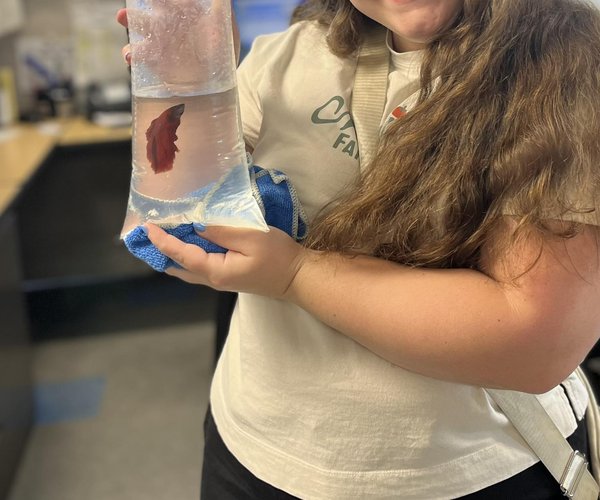Local and state health officials are urging people to stay vigilant about protecting themselves from mosquito bites as California recorded the second death from West Nile Virus and more mosquitoes capable of transmitting Zika have been detected in the region.
The California Department of Public Health’s West Nile Virus webpage stated the recent fatality was that of a man in his 70s and residing in Fresno County. In July, a 74-year-old man from Imperial County died from the virus. In 2018, California recorded 11 deaths from the virus.
"West Nile Virus activity in the state is increasing, so it is important to take every possible precaution to protect against mosquito bites," said State Public Health Officer and CDPH Director Dr. Karen Smith in a news release.
Historically, health departments see more cases of West Nile Virus in August than in June or July because of the warmer weather. Warm temperatures extend the mosquito season and ramp up the maturity process, meaning the mosquitoes reach biting age quicker. Hot temperatures also contribute to increasing numbers of breeding mosquitoes and an increased risk of virus transmission to humans because there are more infected mosquitoes. The risk of disease due to WNV increases as the summer progresses, and declines in early fall as the weather cools.
Mosquitoes become infected with West Nile Virus when they feed on infected birds. Infected mosquitoes can then spread West Nile Virus to humans and other animals when they bite, according to the Centers for Disease Control.
Approximately 1 in 5 people who are infected with West Nile virus will develop symptoms such as fever, headache, body aches, joint pains, vomiting, diarrhea, or rash. Less than 1 percent will develop a serious neurologic illness such as encephalitis or meningitis (inflammation of the brain or surrounding tissues). About 10 percent of people who develop neurologic infection due to West Nile virus will die, according to the CDC. People over 50 years of age and those with certain medical conditions, such as cancer, diabetes, hypertension, kidney disease, and organ transplants, are at greater risk for serious illness.
There are no medications to treat or vaccines to prevent West Nile Virus infection. People with milder illnesses typically recover on their own, although symptoms may last for several weeks or months. In the neuroinvasive forms, patients can suffer severe and sometimes long-term symptoms.
The CDPH said there are 25 counties in California that have detected West Nile Virus. There have been 45 human cases in 11 counties.
The Turlock Mosquito Abatement District reported a dead bird testing positive for West Nile Virus was collected in the area bounded by W. Taylor Road and N. Golden State Boulevard. Mosquito samples testing positive for the virus have been found in Hughson, Denair and the north and east areas of Turlock.
It’s not just the transmission of West Nile Virus that has the area’s mosquito districts concerned. The mosquito breed responsible for transmitting the Zika virus has been detected in Stanislaus County. Aedes aegypti mosquitoes, which are invasive for the region, are capable of transmitting viruses such as chikungunya, dengue, yellow fever, and Zika. While the Aedes aegypti mosquito has the potential to transmit deadly viruses, none of these viruses are currently known to be transmitted locally in California.
In contrast to the native amber-colored Culex mosquitoes, whose peak biting times are dawn and dusk, Aedes aegypti mosquitoes are black and white, bite aggressively during the day, and feed almost exclusively on humans. Additionally, the larvae of Aedes aegypti mosquitoes require much less water. Females lay their eggs just above the water line in small containers and vessels that hold water, such as dishes, potted plants, bird baths, ornamental fountains, tin cans, or discarded tires. The eggs can survive for up to eight months after the water dries out.
District staff will be conducting enhanced surveillance in the area including more trapping to evaluate the extent of the infestation.
Most people testing positive for Zika will have mild to no
symptoms. The most common symptoms include fever, rash, conjunctivitis (red eyes), and
joint pain and begin three to seven days after being bitten.
Severe illness requires supportive care at a hospital. There is no vaccine or
cure for Zika.
The virus is of most concern to pregnant women or women considering getting
pregnant in the near future. Zika virus during pregnancy can
cause microcephaly and other severe brain defects in
infants. Additionally, there is an association between Zika
and Guillain-Barré Syndrome, a disease affecting the nervous system.
Zika virus can also be transmitted to sexual partners by both males and females. Both men and women of childbearing age should take precautions if they have recently traveled, or plan to travel, to a location where Zika is spreading. The virus can live in men for up to six months and up to eight weeks in women.
Prevent Aedes aegypti development in your yard:
1. Inspect yards for standing water sources and drain water that may have collected under potted plants,
in bird baths, discarded tires, and any other items that could collect water;
2. Check your rain gutters and lawn drains to make sure they aren’t holding water and debris;
3. Check and clean any new potted plant containers that you may bring home from areas that may have Aedes aegypti. The eggs can remain viable under dry conditions for months.
CDPH recommends that people protect against mosquito bites by
practicing the "Three Ds":
1. DEET -
Apply U.S. Environmental Protection Agency (EPA)-registered insect repellent
containing DEET, picaridin, oil of lemon eucalyptus, or IR3535 according to
label instructions. EPA-registered repellents are recommended for use because
they have been tested for safety and efficacy in preventing mosquito bites.
Insect repellents should not be used on children under two months of age. For
more information, visit CDPH's insect repellent toolkit.
2. DAWN AND
DUSK - Mosquitoes that transmit WNV usually bite in the early morning and
evening, so it is important to wear proper clothing and repellent if outside
during these times. Make sure that your doors and windows have tight-fitting
screens to keep out mosquitoes. Repair or replace screens that have tears or
holes.
3. DRAIN -
Mosquitoes lay their eggs on standing water. Eliminate all sources of standing
water on your property by emptying flower pots, old car tires, buckets, and
other containers. If you know of a swimming pool that is not being properly
maintained, please contact your local mosquito and vector control agency.
The Turlock Mosquito Abatement District has been conducting aerial spraying to control for mosquitos and has plans to continue the treatments.
Reporting and testing of dead birds are important steps in preventing West Nile Virus. A confirmed case of the virus in dead birds or mosquito samples helps to identify areas that need treatment to reduce mosquito activity. To report a dead bird, call the California State hotline at 1-877-WNV-BIRD or report it online at www.westnile.ca.gov. Birds of particular interest are crows, ravens, magpies, jays and raptors (hawk or eagle).
The Turlock Mosquito Abatement District is available to help with neglected pools in the prevention of mosquito development. To request District service, call 634-1234 or visit the District website at http://www.turlockmosquito.org/









